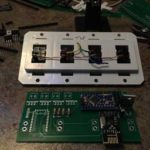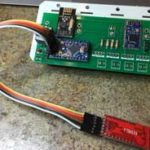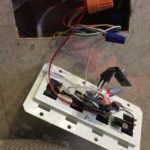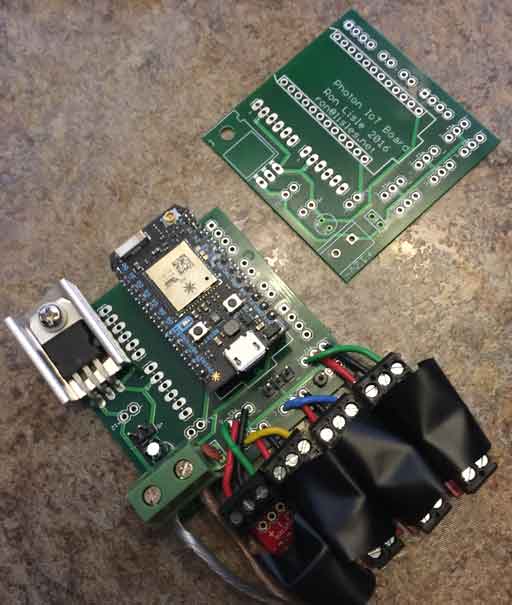 At this point I’ve installed about a dozen Arduino Pro Mini based controllers in my RV. These are very inexpensive, about $2 each, but suffer from several limitations:
At this point I’ve installed about a dozen Arduino Pro Mini based controllers in my RV. These are very inexpensive, about $2 each, but suffer from several limitations:
- Fairly slow
- This is ok if all you need is something to read a switch and set a corresponding set of outputs, but becomes an issue as requirements grow.
- Require a direct FTDI cable connection to program or update
 In my usage case, I’m mounting these things above ceilings to control lights, and behind wall switches to read and broadcast switch state. This means every time I need to change or debug them, I have to open up the wall, which means removing the switch plate and switch or lamp fixture to get to them.
In my usage case, I’m mounting these things above ceilings to control lights, and behind wall switches to read and broadcast switch state. This means every time I need to change or debug them, I have to open up the wall, which means removing the switch plate and switch or lamp fixture to get to them.
- Require direct physical access to reset

- Sometimes they just hang, or their associated circuitry hangs up, and it is necessary to “hard reset” them. They have a push button reset on them, but as mentioned above it isn’t easy to access them in my situation.
So for awhile now I’ve been contemplating converting my Arduino Pro Mini based designs to use the Particle.io Photon MCU instead. These parts are awesome:
- Fast 32 bit CPU
- Lots of memory
- Built-in WiFi and antenna
This last item is the biggie. I can update them remotely, meaning that I can leave the boards buried in a wall somewhere and still reprogram or reset them.
The thing that has made me reluctant to do so up until now has been the price. These parts are $19 each. That may not sound like much, but I plan on using a lot of controllers in my RV, probably on the order of 30 to 40. But then I stopped and did the math: 30 Photons at $19 each comes out to $570.
What? I’ve been using one Photon to bridge between the Pro Minis and the internet to allow Alexa to control them. Now I’m going to have each directly accessible, simplifying the overall design. So I’ve designed and built another PCB for the Photon.

So far things are working great. I’ve redesigned the architecture to use a publish/subscribe model, which will allow the system to be expanded without having to reprogram existing units. And I’ve converted my Alexa code so my Echo talks directly to the boards using particle.io publish instead of functions calls. But that’s a topic for another post.
